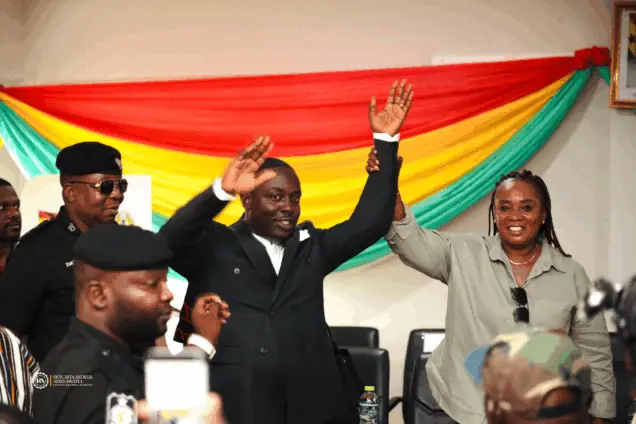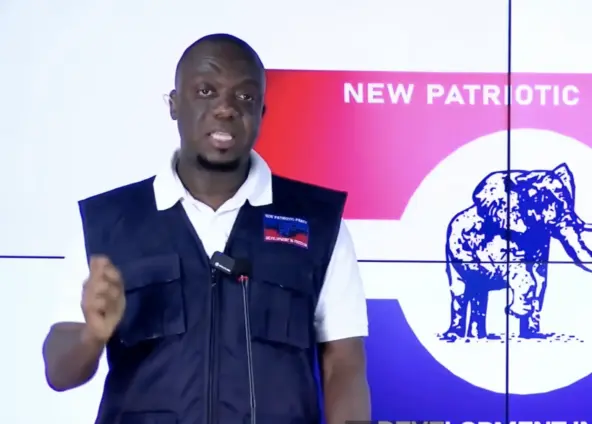The stark contrast is often jarring: gleaming mining operations extracting valuable resources from the earth juxtaposed against the persistent underdevelopment of the very communities that host them. In Ghana, this disparity has fueled a growing call for greater accountability in the management of mineral wealth. Ahmed Nantogmah, a prominent voice in the sector, argues that a significant portion of the blame for this disconnect lies not just with mining companies, but with the misuse of mineral royalties by local authorities. He believes a clear legal framework is urgently needed to ensure that these funds, intended to benefit mining communities, are used effectively.
Mineral royalties, payments made by mining companies to the government and, in turn, to local communities, are meant to drive development and improve the lives of those most directly impacted by Ghana mining activities. However, a lack of transparency and oversight has led to widespread concerns about their mismanagement, hindering progress and perpetuating a cycle of underdevelopment. Nantogmah’s solution? A comprehensive mineral revenue management act that dictates precisely how these funds should be utilized.
The Core Issue: Mismanagement of Mineral Royalties
“We need an act or a law that will regulate the utilisation of mineral royalties,” Nantogmah asserts, highlighting a critical gap in Ghana’s regulatory landscape. Currently, the absence of a legally binding framework allows for discretionary spending, often resulting in funds being diverted away from their intended purpose. This lack of accountability has led to a situation where local assemblies, despite receiving royalties, frequently find themselves seeking assistance from mining companies to address basic infrastructure needs.
Consider the example of Gold Fields, a major player in Ghana’s mining sector. The company reportedly constructed over 33 kilometers of road in a community where, in theory, royalty funds should have been sufficient to cover such a project. This underscores a fundamental problem: substantial sums are allocated as royalties, yet tangible improvements in community infrastructure and services often remain elusive.
The Proposed Solution: A Mineral Revenue Management Act
Nantogmah envisions a Mineral Revenue Management Act modeled after the existing Petroleum Revenue Management Act, which governs the use of oil revenues. Such a law would explicitly define the permissible uses of mineral royalties, earmarking funds for crucial sectors such as health, education, and sanitation. By making these stipulations legally binding, the act would provide a much-needed check on discretionary spending and ensure that funds are channeled towards projects that directly benefit mining communities. The current state of mineral royalty management lacks such explicit legal directives, leaving room for misuse and inefficiency. A well-defined legal framework could provide clarity, accountability, and a more equitable distribution of mineral wealth.
The town of Obuasi, a historic mining hub, serves as a poignant case study. Nantogmah raises a crucial question: are royalties genuinely returning to host towns like Obuasi, and if so, how are these funds being used? The lack of transparency surrounding these returns raises serious concerns about whether the benefits of mining are truly reaching the communities that bear the brunt of its impact.
The Broader Context: Development Responsibilities and National Impact
Nantogmah is firm: “If the town is not properly planned, it’s not the job of the mining company to make the street straight or to build skyscrapers. That’s mineral revenue.” Planning and development are, he argues, the core responsibilities of local governance, not the purview of mining companies. It’s a crucial distinction, highlighting the need to shift the burden of basic infrastructure provision away from mining companies and towards the effective utilization of mineral royalties.
A study has revealed that a staggering 80% of mineral benefits remain concentrated in Accra, the capital city. This stark statistic underscores the uneven distribution of mineral wealth in Ghana. While mining revenue contributes to national development, its benefits often fail to trickle down to the local communities most directly affected by mining operations, exacerbating inequalities and fueling resentment.
Addressing Key Questions and Concerns
Nantogmah advocates for a national conversation about the adequacy of current royalty amounts, the mechanisms for sharing them, and the crucial need to tie revenue to specific, impactful projects. He underscores the intricate nature of revenue distribution and allocation, recognizing that a one-size-fits-all approach is unlikely to be effective.
Improving transparency and accountability is paramount. Potential mechanisms for monitoring and auditing royalty usage need to be explored, coupled with robust community involvement in decision-making processes. By empowering local communities to participate in the oversight of royalty funds, a greater sense of ownership and accountability can be fostered, ensuring that these resources are used in ways that genuinely reflect community priorities.
Ahmed Nantogmah’s call for a new law to regulate mineral revenue management underscores the urgent need to address the widespread abuse of mineral royalties in Ghana. By establishing a clear legal framework, earmarking funds for specific development projects, and enhancing transparency and accountability, Ghana can unlock the full potential of its mining sector to drive sustainable development in mining communities. Mineral royalties are vital for the development of Ghana’s mining communities, and effective mineral revenue management is crucial for ensuring their proper use.
Image Source: MYJOYONLINE






















